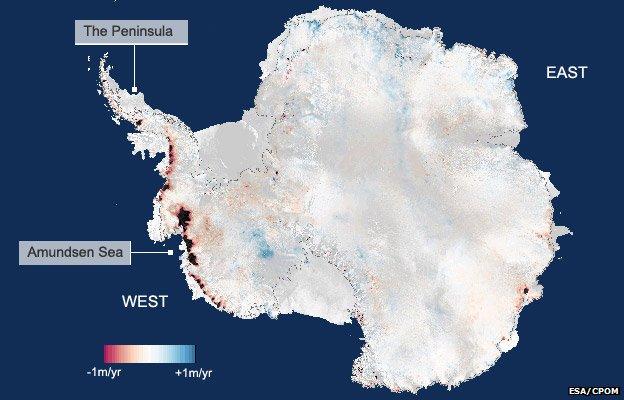A new report confirms that Antarctica is melting–still slowly, but twice as fast as four years ago
Antarctica’s ice loss 2010-2013, as surveyed by the European Space Agency’s CryoSat satellite.
There's more news today on the Antarctic ice cap, and once again, it's not good.
A new report from the European Space Agency's CryoSat program says Antarctica is losing ice twice as fast as it was just four years ago.
That's a rate of a hundred and sixty billion tons of ice melting into the sea every year, enough to add nearly half a millimeter a year to global sea levels.
The white continent surrounded by the giant Southern Ocean has been somewhat insulated from the decades of warming that have affected the rest of the planet. But the BBC's Jonathan Amos says it’s now clear that Antarctica is not immune, especially at its margins, where deep warm waters are now melting some of its biggest glaciers.
CryoSat has watched the ice sheet as a whole lose height by an average of 2 centimeters a year. When the satellite was last used to assess the continent 4 years ago, it could see 80 billion tons of ice being lost annually to the ocean. Its new observations find that the melt figure has since doubled.
The major concern is West Antarctica, where the US space agency NASA concluded last week that some very profound changes are now underway. Six colossal glaciers there are in what scientists regard as an unstoppable retreat.
Their complete destruction is likely to take several centuries, but that will add more than a meter to global sea levels, with all of the consequences that will have for low lying cities around the world.
